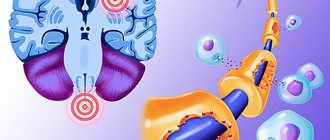Occupational stress is a painful condition caused by work-related factors. For example, tension due to tasks, team atmosphere, excessive workload.
According to research, more than half of US workers experience occupational stress, 60% of the time. It has a detrimental effect on the worker’s body, and these can have both physiological and psychological consequences. For example, constant stress can lead to emotional disorders or cardiovascular disease.
What is occupational stress
Scientists divide stress into two types:
- Eustress, that is, productive stress, is a state in which our resources are mobilized, we overcome obstacles and learn something.
- Distress, that is, destructive stress, is harmful stress that destroys us.
Eustress is useful if it occurs rarely and we can control it - it is a state when we work at the limit of our capabilities for a short time. Distress, on the contrary, is harmful. This is a constant tension that we cannot overcome and which is gradually becoming the new normal. When we talk about professional stress, we usually mean these same types of stress, simply caused by some factors at work.
Read more: Signs of occupational stress
The main provocateurs of work stress
Various factors can trigger stress in the workplace. They usually concern:
- directly in the labor process (we are talking about poor working conditions, highly hazardous work/risk to the health or even life of the employee, uncomfortable working hours, acute lack of time to perform important tasks, overload or lack of information, too active or, conversely, monotonous activity etc.);
- unhealthy microclimate in the team (strained relationships with colleagues, superiors, frequent conflicts, “difficult” subordinates, etc.);
- with the profession (the need to be responsible for other people, unclear job responsibilities, excessive demands on the employee, etc.);
- with career advancement (rapid career growth or lack thereof, unclear prospects, inability to improve qualifications, and the like);
- with wages - if it is very low, the employer constantly delays payments, there is no social security;
- with a person’s personal characteristics (low degree of stress tolerance, lack of professional skills, etc.).
If at least one of the indicated factors regularly occurs (and even more so when there are several of them), the employee’s dissatisfaction with the work process gradually increases, which leads to a decrease in work productivity and a deterioration in psychological and physical health.
Important! Work stress provokes heart and vascular diseases, emotional burnout and worsening chronic diseases. People literally burn out at work.
Why does professional stress occur?
To cope with stress, you need to figure out why you have it in the first place. There are several common reasons for this.
Labour Organization.
When a company has complex bureaucratic procedures and you don't always understand what they mean, it can be annoying. It’s bad if the situation constantly gets worse and negatively affects the results of your work.
The solution in this situation may be your initiative - for example, proposals for optimizing processes that you test and present to management.
Team atmosphere.
It’s difficult to work if you have to think not only about the results of the project and processes, but also what a toxic colleague will say or whether the manager is in a good mood. The solution is either to take the situation into your own hands and change relationships in the team, or change the team.
Leader's rejection.
Our psyche is structured in such a way that we cannot consider a person an authority simply because he is a boss. If a boss demonstrates incompetence, we resist his decisions. And this tension leads to stress.
If the stress is related to your manager, there are two options. It is worth trying to get to know the person better and understand his motives. Perhaps he makes some decisions not because of low qualifications, but under the influence of external factors or pressure from customers. If you really can’t get along with your boss, it’s better to change projects and work with a person you respect as a professional.
Little meaning in work.
Another reason why knowledge workers often burn out. The fact is that we do not always immediately see the results of our work. For example, a company is testing a new direction - an employee works successfully, but the experiment is considered financially unprofitable and is not implemented. As a result, the work is done well, but there is no tangible result - this is demotivating and causes stress.
A lot of work.
No matter how hard a person tries to master the art of productivity or time management tools, there is a limit to everything. We can perform feats of labor from time to time, but if overwork becomes the norm, gradually the body begins to fail and professional stress sets in. And then there are its health consequences.
Of course, in an ideal world, it’s easy to get rid of professional stress - you need to change jobs, find a place where you have to work less, with a good team and a real leader in management. In reality, everything is more complicated. But here's what you can definitely do.
Stress in professional activity: types and stages
Find out what awaits you today - Horoscope for today for all zodiac signs
Due to numerous requests from subscribers, we have prepared an accurate horoscope application for mobile phones. Forecasts will arrive for your zodiac sign every morning - it's impossible to miss! Download for free: Daily Horoscope 2020 (available on Android)
A huge number of workers face work stress every day. Those with a sensitive nervous system, empathic and psychologically unstable individuals are most susceptible to it. Life is much easier for stress-resistant employees, but their percentage is not so high.
Professional stress is stress that arises as a result of difficult situations related to work activity. If we literally translate the term from English, we get “pressure, tension.” These phenomena are the result of prolonged exposure to serious emotionally negative factors.
In psychology, there are 3 types of work stress:
- Emotional . The reasons for its appearance are various kinds of conflict situations. Such stress involves a person’s internal experiences, feelings of resentment, guilt, injustice and anger that arise due to problems in the team.
- Informational . It is caused by too much intellectual load, overload or lack of information, and the need to adhere to strict time frames. Overly responsible people are most susceptible to information stress.
- Communicative . Its reasons: misunderstandings with colleagues, superiors, inability to cope with manipulation, to take the right position in a team, communicative aggression.
In addition to the types of professional stress, there are also 3 stages:
- Anxiety is an extremely negative factor; it provokes a feeling of fear, increases anxiety, and leads to a sharp increase in mental stress.
- Resistance - at this stage the body joins the fight, trying to overcome the problem. A person adapts to an unhealthy environment, gets used to it and, as a result, becomes completely immersed in a stressful state.
- Exhaustion develops if there are no attempts to change the situation at the previous stages. Stress becomes chronic, it gradually leads to depletion of the body's resources, causing health problems, often even dangerous pathologies.
Important! A common consequence of stress at work is professional burnout.
Contact us for support
Zhanna Segal, Ph.D. and founder of the nonprofit psychological assistance community HelpGuide, recommends not forgetting the importance of supporting loved ones. Support and empathy from others, especially in person, can be a very effective way to let off steam and restore a sense of calm. The main thing is to immediately explain to your interlocutors that you do not require any specific help from them - they just need to be good listeners.
The opposite is also important - if you share problems with loved ones, be prepared to listen to them in return. Offer help first, don't wait for the person to contact you.
Signs of stress
Physical signs of stress:
- chest pain or palpitations,
- fatigue,
- nausea, diarrhea or constipation,
- frequent colds,
- muscle tension and headaches,
- shortness of breath and excessive sweating,
- loss or change in appetite,
- sleep problems.
Psychological signs of stress:
- feeling overwhelmed or disappointed
- feelings of guilt or unhappiness
- irritability,
- loss of confidence and indecisiveness,
- negative and confused thoughts
- memory problems,
- excessive worry.
Take care of your nutrition and physical condition
When you are overly focused on work, you may not take care of your health. But it is proper nutrition and exercise that can make you stronger and more resilient to stress. Self-care does not require major lifestyle changes. Even little things can lift your mood and increase your energy levels.
See also: How to increase stress resistance
Find time for regular exercise.
There are studies that show that literally half an hour of active walking or running a day is enough to feel better.
Try to eat right
, saturate your diet with meat and a lot of different vegetables. Eating small, frequent, healthy meals helps the body maintain consistent blood sugar levels. This maintains your energy and concentration and prevents mood swings.
Minimize your intake of sugar and fast carbohydrates.
Soft wheat pasta, potatoes, pizza, white bread, sweets - all these are simple carbohydrates that lead to obesity and reduce energy levels.
Major stressors
Many external factors can trigger the development of professional stress.
The most common:
- Communication. The sphere of interaction between people is characterized by the greatest concentration of stress. Special skills are required to interact with teams, partners and clients. Criticism and problems cause tension, leading to stress.
- Wrong priorities. Dissatisfaction with results due to abandonment of important tasks can cause tension.
- Time restrictions. When an employee is given very tight deadlines, he will have to forget about high-quality completion of the task. At the same time, the rush itself due to the fear of not being on time can cause stress.
- The requirements are too high. Excessive demands, complex tasks and many other difficulties not only complicate the performance of work, but also have a negative impact on work efficiency, causing stressful situations.
These are the main factors that can lead to the development of stress. This also includes monotony of work, too busy schedule, poor working conditions, and low income.
The mechanisms of accumulation of professional stress are as follows::
- single - leads to burnout, as it is constantly exposed without specific injury;
- traumatic - this includes all events that traumatize a person’s psyche, such as an emergency at work or other events that can make a strong impression.
Constant stress can lead to alcohol or drug addiction.
Avoid bad habits
Some people smoke as “self-medication,” supposedly to relieve feelings of stress. However, studies have shown that smoking actually increases anxiety and tension.
The problem is that nicotine does relax you at first, but only for a few moments. Then withdrawal symptoms set in and food cravings increase. To relieve these symptoms, the person smokes again, and everything repeats. As a result, stress only grows, and by the evening cigarettes do not help even for a few moments.
Alcohol is even worse - it causes the production of cortisol, which only increases tension in the body and prevents it from relaxing on a physiological level. Moreover, researchers have linked increased cortisol levels in the body with the development of metabolic disorders and mental disorders such as depression.
When you feel tense and notice symptoms of occupational stress, it is better to first stop smoking and drinking alcoholic beverages. They will only make the problem worse.
Optimal amount of stress
Too little stress and a person becomes sour and bored. Too much and you burn out and become ineffective. In everything you need an optimal golden mean.
The consequences of chronic stress are very, very serious:
- chronic muscle tension (energy is directed to servicing tension and does not go to productive activity);
- psychosomatic diseases (from ARVI and asthma to hypertension, ulcers and oncology);
- and what’s worst for employers is that a talented employee may completely lose interest in the prospects of continuing to work in a given company and quit.
The mechanism of stress is very simple and as effective as anything simple. An event, neutral in its philosophical essence, is perceived by the psyche as dangerous and threatening (to life or self-esteem).
Perceiving a situation as dangerous involves a chain of reactions in a person:
- At the hormonal level, adrenaline and cortisol are “thrown” into the blood.
- At the emotional level, emotions of different shades are triggered depending on the person’s training (fear, anxiety, restlessness, fright, excitement, joy from the upcoming battle, etc.).
- At the muscular level - the heart rate increases, blood pressure rises, muscles are mobilized.
- At the behavioral level, it happens in different ways: for some, activity and mobility increase (the “racehorse” type), while others become inhibited and begin to engage in self-criticism (the “turtle” type).
- At the physiological level, it changes the rhythm of breathing, sweating and the functioning of many body systems.
Quite a lot of human resources are spent on the implementation of all these reactions. This is why it is so important to prevent chronic recurrence of stress and exhaustion (distress).
The most important link in this chain of reaction is the image of perception of the situation . Scientists have long noticed that the perception of a truly threatening event and imagining oneself in a situation of threat at the level of only mental images leads to the same reactions of the body. If we constantly let in images of threats, thoughts about threats, news about threats, then we are guaranteed chronic stress.
The other most important element is the physical and psychological fitness of a person. For one, the risk of a fight is complete stupor and panic, but for another, it is a joyful anticipation of victory and entertainment.
There is an opinion that the children's bedtime song “A little gray top will come and bite you on the side...” has been a unique way of training children in adequate ways to respond to a threat since time immemorial, used by parents. Interesting idea.
Start the day with a positive attitude
Elizabeth Scott, MD and author of the psychological portal VeryWellMind, reminds us of the benefits of morning rituals. It is unlikely that we will have a positive attitude towards life if we spend every morning fighting traffic jams and being content with coffee instead of a healthy breakfast.
Instead, try getting up early and preparing a healthy breakfast. There is no need to come up with some amazing and complex dishes, just scrambled eggs and fruit are enough. If possible, leave home early and get to work without traffic jams. Or try replacing the car with the metro - without the hassle of travel, your mood will definitely be better in the morning.
Elizabeth Scott's key conclusion about the impact of morning on professional stress is that the less we worry in the morning, the better we feel during working hours and the more difficult it is for stress to overcome our good mood.
Stressful scenarios
An employee’s stress scenario is his individual form of behavior and reaction under stress . In addition, everyone has a different frequency and severity of stress.
Some people experience them almost every day, but in small doses. Such workers are not very aggressive under stress and do not show violent emotional reactions. Therefore, they do not significantly damage relationships with colleagues. Other people experience stress less frequently, several times a year, but very intense. Their self-control is significantly reduced: in a fit of emotion they can raise their voice at a colleague, explode in anger, tear up a report, write a letter of resignation and do other stupid things.
Another important characteristic of a stress scenario stands out: the direction of aggression . One person blames himself for everything, analyzes his mistakes. The other is unable to look at himself from the outside and blames others. Where is your stress aggression directed: at yourself or at your colleagues?
It is important to understand that, regardless of the direction of aggression, this emotion, if it is not processed, destroys the one who experiences it. You can be angry at someone else, but in doing so you destroy yourself.
Therefore, it is in your interests to learn to cope with your emotions , to learn the correct reactions.
If you have not developed stress management skills, your stress scenario may “run” automatically. At the slightest violation of the usual conditions of professional activity, you begin to conflict with colleagues. Even for the smallest, most insignificant reasons.
Your correct perception of the current situation and your colleagues is distorted. You begin to attach excessive importance to little things that you would hardly pay attention to at rest. These are the first bells: a signal that you need to balance yourself, calm down.
Analyze your stress scenario.
Remember what your features are? This will help you consciously approach your behavior and manage yourself when stress increases. You will be able to track the origin of stress in its infancy, from the very beginning, when a negative emotional outburst has not yet occurred. And you will be able to avoid bringing the situation to peak tension, to the point of complete loss of control over your behavior.
The impact of stress on staff performance
Stress and its impact on work efficiency are one of the important subjects of study in modern psychology. New approaches are being developed to solve the problem. Why does work stress occur among organizational staff:
- The employee’s lack of understanding of his place in the team and the purpose of his activity.
- Performing different duties by one employee.
- Reaching the peak of your career, no further prospects for growth.
- Long absence of vacation.
- Undervaluation of work by the manager.
The listed factors cause low motivation of employees, which, in turn, causes stress in the work of the manager. A vicious circle is formed - subordinates and bosses irritate each other. The faster a tense situation is resolved, the faster the company's performance will improve.
Stress... Each of us encounters it every day. He enters our day with the sound of an alarm clock. Meets us on a crowded bus. Accompanying at production meetings. It becomes the cause of misunderstanding between family and friends.
Today, one of the most unfavorable consequences of the busy pace of life in our society is an increase in stress loads and overwork. Unfortunately, stress has become a normal part of life for most of us. Today, few people can boast of mental stability, the absence of negative emotions and stable self-control. Loss of mental balance, feelings of anxiety, melancholy, dissatisfaction with oneself and one’s life, and decreased performance are well known to many.
Stress is a normal mechanism of adaptation to changes in environment, a natural reaction to danger and discomfort. But if a traumatic situation drags on and it is impossible to resolve it on your own, stress becomes chronic. Constant stress is very dangerous - it can lead to neuroses and even depression.
Anything can cause stress - relationship problems, difficulties at work, low self-esteem, bereavement, fear, tragedies and excessive fatigue.
Although stress is a normal part of our lives, we should not forget that constant stress at work significantly reduces productivity, physical and emotional health. This is why it is so important to find ways to keep work stress under control. Fortunately, each of us can independently limit and manage stress at work; to do this, we need to correctly identify its signs.
These include:
- Irritability, depressed mood that occurs without any reason. Insomnia.
- Psychosomatic symptoms in the form of constant mild headaches, back pain, increased blood pressure, chronic fatigue and reluctance to do anything at all.
- The need for alcohol leading to binge drinking.
- Brain dysfunction. This may include decreased performance, impaired concentration, and memory problems.
- Bad mood, increased tearfulness, self-pity, pessimistic attitude, crying, frequent desire to argue and shows excessive criticism of things that were previously quite satisfactory; loses interest in others, stops communicating with friends and relatives, tries to retire, becomes apathetic.
- Appetite disturbances, which may disappear altogether or, conversely, develop to the point of regular gluttony. In addition, as stress progresses, nervous tics and characteristic movements of the same type appear - for example, a person can constantly bite his lips, bite his nails, or tear at wounds.
When people are under occupational stress, they become angry and irritable. This condition does not have the best effect on the quality of their work and labor productivity. In addition, professional stress worsens relationships with management, colleagues and subordinates. Stress in the workplace has the most detrimental effect on health. After all, the most dangerous thing about stress at work is its duration and, very often, the inability to adequately respond to the stimulus.
To purposefully reduce stress at work, it is necessary to make an unbiased assessment of the job itself and your workplace. You need to find out:
-what conditions at work create negative emotions,
- what conditions can be changed independently,
- what situations cannot be changed and must be accepted as they are,
— is it worth accepting them or should you leave.
Basic work organization can significantly reduce stress:
— Creating a balanced schedule. Analyze your schedule, responsibilities and daily tasks. Remember that your job should not be a game of survival. Try to find a balance between work and family life, social activities and hobbies, daily responsibility and relaxation.
- Don't overload yourself. Avoid constant tension. Try not to put off many important tasks until the last day. Wake up earlier. A reserve of 10-15 minutes will save you from rush and morning stress. Getting up early will make your day a little longer and allow you to be more punctual.
— Take regular breaks from work. At lunchtime, try to leave your workplace. Taking a short break will help you relax, which will help you be productive.
— Make a list of tasks that you must solve in descending order of importance. Focus on your highest priorities first. If you need to do something that isn't particularly enjoyable, do that first. And devote the rest of the day to more pleasant activities and responsibilities.
— Break large projects into parts. If a large project seems impossible, don’t be afraid, just break it down into a large number of small steps and complete them gradually. Focus on completing each step individually, rather than thinking about everything at once.
— Delegate responsibility. You don't have to do everything. If you have people in your company who can handle one of your tasks, why not let them handle that task? Let go of the desire to independently perform and control all, even the most insignificant, tasks. And you will reduce your stress level.
— Be friendly with colleagues and subordinates; — Improve your communication skills - learn to speak so that you are understood exactly the way you want; — Improve your qualifications - be sure to attend courses and trainings planned at work;
Not all stress management techniques are worth using, even if they seem to be of real help. Such erroneous strategies include:
— Distancing from the problem or postponing its solution. At the same time, the stressor does not disappear anywhere, and continues to influence a person, depleting his psychophysiological reserves;
- Escaping reality using alcohol or drugs. This method reduces the severity of the problem for a while and may seem to minimize the symptoms of stress. In fact, under the influence of such substances, psychophysiological resources are depleted even faster, despite the fact that the stressful situation still remains tense.
- Avoidance of responsibility. This method, also called the “ostrich pose,” is by definition ineffective and indicates the complete immaturity of the person who chooses it.
— Search for social support. This can be effective in situations of acute grief, but shifting absolutely all problems onto the shoulders of other people is unacceptable. Such a person will not only be unable to cope with stressors on his own in the future, he creates problems for those around him, forcing them to share their own experiences and practically experience stress.
According to the World Health Organization, 65% of all diseases are causally related to stress.
Prolonged stress can lead to the following consequences :
- disturbances in the functioning of the cardiovascular system occur (sustained high blood pressure, heart attacks, angina pectoris, strokes;
- a person may develop diabetes mellitus, inflammation of the pancreas and thyroid glands;
- In women, the menstrual cycle is disrupted and menopause may occur prematurely;
- the gastrointestinal tract suffers - colitis, cholelithiasis, gastritis and peptic ulcer of the stomach and duodenum can be diagnosed.
- Immunity decreases and cancer occurs.
- Regular stress provokes a high concentration of glucocorticoids - this leads over time to muscular dystrophy, and the absorption of calcium by a large number of hormones “released” during stress ends in the development of osteoporosis.
Either way, the health consequences of stress are truly serious.
During stress, our body produces a large amount of hormones - adrenaline and cortisol. For the “production” of these hormones, vitamins C, B, zinc, magnesium and other minerals are needed. Under stress, these elements are urgently “confiscated” from their jobs in the body, where, in turn, their shortage occurs. As a result, a lack of vitamin C and zinc prevents us from producing enough collagen, which affects our skin. A lack of vitamin B inhibits energy production and mental performance. Magnesium deficiency leads to headaches and hypertension.
The effects of stress can be combated using medicinal and non-medicinal methods.
The first include B vitamins and adaptogens - substances that increase the abilities of adaptive systems. These include ginseng, lemongrass, licorice, echinacea, and green tea. In severe cases, antidepressants and sleeping pills are used.











